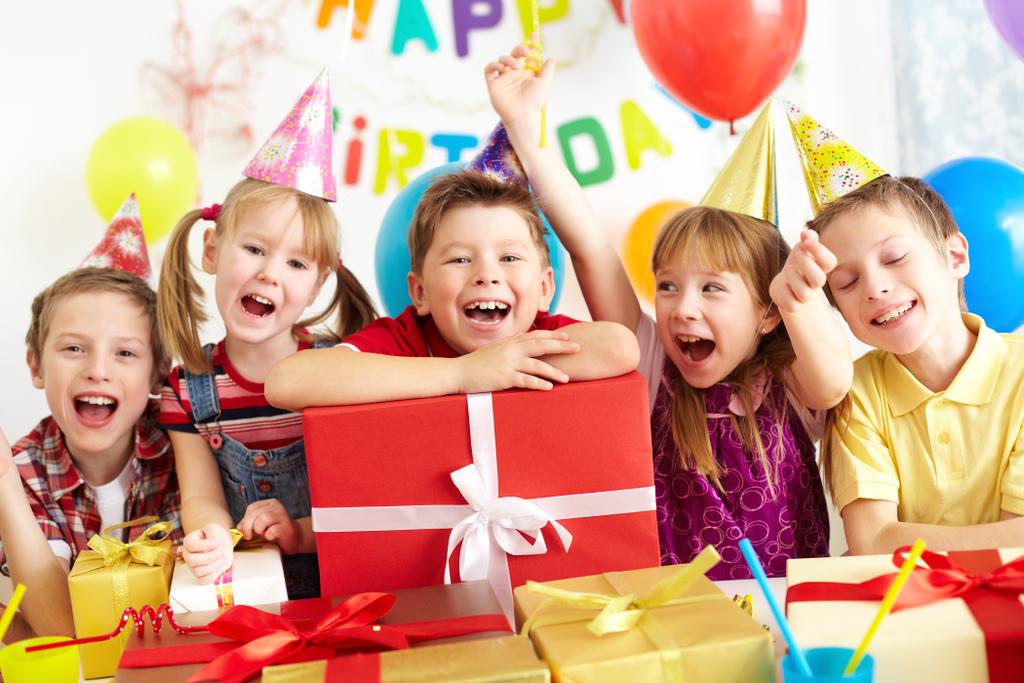Discover effective strategies for managing impulsiveness at birthday parties.
Handling Handling Impulsiveness at a Birthday Party
Birthday parties are a magical time for children. Amidst the balloons, cake, and presents, one thing that tends to make an appearance is their good old friend, Mr. Impulsiveness. If you find yourself scratching your head and wondering how to handle the whirlwind of impulsive behavior that tends to accompany these joyous occasions, fret not! We’ve got you covered with some insightful tips and tricks. So, let’s dive right in and explore the world of impulsiveness at a birthday party together!

Understanding Impulsiveness in Children
Before we delve into the chaos (oops, I meant fun!) of a birthday party, it’s essential to understand what exactly we mean by “impulsiveness.” Picture this: your little one sees a shiny toy or a mouth-watering piece of chocolate cake, and before you can say “surprise,” they’ve already darted across the room to grab it. That’s impulsive behavior for you! It’s like they have a direct line to spontaneity that bypasses the logical thinking department in their brain.
Defining Impulsiveness
Impulsiveness refers to acting without forethought or consideration of the consequences. It’s the pinnacle of living in the moment, and let’s face it, as adults, we’re sometimes envious of that ability! However, in children, impulsiveness can often lead to situations that leave us clamoring for a magic wand to restore order.
The Science Behind Impulsive Behavior
So, what’s with all this impulsive behavior anyway? Well, the brain, being the magnificent and complex organ that it is, undergoes various levels of maturation as your child grows. The prefrontal cortex, responsible for reasoning, decision-making, and self-control, is still a work in progress during the early years. Hence, impulsive actions tend to reign supreme. Think of it as the “just can’t wait” part of their brain having a bit too much say in things!
But fear not, dear parents! As your child continues to grow and develop, their brain undergoes significant changes. The prefrontal cortex gradually becomes more refined, allowing for better impulse control and decision-making. It’s like a superhero’s journey, with the brain evolving into a mighty force of self-regulation!
Interestingly, research has shown that impulsiveness is not solely determined by brain maturation. Environmental factors, such as parenting style and social interactions, can also play a role in shaping impulsive behavior. So, while the brain is on its quest for self-control, it’s important to provide a nurturing and supportive environment that encourages the development of these skills.
Impulsiveness and Age: What to Expect
Like everything else in life, impulsiveness tends to evolve as your child grows older. As they gain more life experience and the prefrontal cortex gets its act together, you can expect a gradual decline in impulsive behavior. Toddlers and preschoolers are the MVPs (Most Valuable Players) of impulsivity, while older children tend to become slightly more skilled at reigning in their “jump first, think later” impulses. It’s all part of the glorious process called development!
As children enter their school-age years, they begin to understand the concept of consequences more deeply. They start to grasp that their impulsive actions can lead to both positive and negative outcomes. This newfound awareness, coupled with the maturation of the prefrontal cortex, allows them to exercise more self-control and make more thoughtful decisions.
However, it’s important to remember that impulsiveness is not entirely eradicated with age. Even adults can succumb to impulsive behavior from time to time. So, while we celebrate the growth and development of our children, let’s also acknowledge that we’re all a work in progress when it comes to mastering the art of self-control!
Impulsiveness at Social Gatherings
Now, let’s fast forward to the main event: the birthday party itself. These social gatherings have a unique way of cranking up the impulsiveness factor. And who can blame those little party animals? Brightly wrapped presents, sugary treats, and cheerful company create a recipe for excitement overload!
As the birthday party kicks into full swing, the air is filled with an electric energy that is palpable. The room is adorned with colorful decorations, balloons floating in every corner, and the sound of laughter and chatter fills the air. It’s a sensory overload that sets the stage for impulsive behavior.
The Role of Excitement and Stimulation
One of the major culprits behind increased impulsiveness at birthday parties is the sheer amount of excitement and stimulation. It’s like a whirlwind of serotonin and adrenaline flooding the tiny bodies of our young partygoers. With their senses on overdrive, resisting the urge to give in to every tempting goodie or spontaneous game can be a real challenge.
The anticipation builds as the children eagerly await the moment when the birthday boy or girl blows out the candles on the cake. The room erupts in applause and cheers, fueling the already heightened excitement. It’s as if the very atmosphere is urging them to let loose and embrace their impulsive desires.
Peer Influence on Impulsive Behavior
Ah, the power of peer influence! We’ve all experienced how our little ones are often swept away by the contagious energy of their friends. They see someone darting toward the candy buffet, and it becomes an invitation for a little impromptu race. Suddenly, everyone is convinced that bolting across the room at lightning speed is the new trend. It’s like they have a secret rule book for spontaneous group shenanigans!
Friendships are formed and strengthened at these social gatherings, and with that comes a desire to fit in and be part of the fun. The sight of their peers engaging in impulsive behavior creates a sense of belonging and camaraderie that is hard to resist. It’s not just about the candy or the games; it’s about being part of the collective experience.
The influence of peers extends beyond just the immediate moment. The memories created at these parties become stories to be shared and cherished, reinforcing the impulsive behavior as a positive and exciting part of their social lives. The next time they attend a birthday party, the cycle continues, with each child eager to contribute their own impulsive antics to the collective memory bank.
Strategies for Managing Impulsiveness
Now that we’re armed with a deeper understanding of why impulsiveness takes center stage at birthday parties, let’s explore some strategies to navigate this exciting chaos.
Impulsiveness, while often seen as a negative trait, can actually be a source of excitement and joy. It’s the spontaneous actions and unexpected moments that make birthday parties so memorable. However, it’s important to find a balance between embracing the impulsive fun and ensuring the celebration stays safe and enjoyable for everyone involved.
Pre-Party Preparations
First things first, get your game face on! Prepare your child for the thrill ride that awaits them. Talk about the party, set expectations, and explain that while impulsive fun is encouraged, there are still certain boundaries to be aware of. By having this conversation beforehand, you can help your child understand the importance of balancing their impulsive desires with the need to respect others and their surroundings.
Additionally, consider involving your child in the party planning process. Let them have a say in the activities, decorations, or even the theme of the party. This way, they feel a sense of ownership and responsibility, which can help them exercise self-control during the event.
During the Party: Tips and Techniques
Welcome to the party zone! During the event, try redirecting your child’s impulsive energy by engaging them in structured activities. Organize games, crafts, or even a mini-dance session where their spontaneous moves can be channeled into something fantastic. This way, their impulsive side gets to shine while contributing to the overall fun and excitement of the party.
Furthermore, it’s helpful to have a chat with the birthday child’s parents beforehand to ensure that party favors or activities are aligned with your approach to managing impulsiveness. By working together, there’s a higher chance of creating an environment that nurtures both spontaneity and a sprinkle of self-control. Collaborating with other parents can also provide an opportunity for your child to learn from their peers and observe different ways of managing their impulsive tendencies.
Post-Party: Dealing with Aftermath and Reflection
Phew, the party is over! Now it’s time to take a breather and reflect on the whirlwind of impulsive behavior that just transpired. This is a fantastic opportunity to discuss the party experience with your child. Highlight the joy they brought to the celebration and gently point out any instances where impulsive actions may have caused a little chaos. Encourage thoughtful reflection and emphasize the importance of taking a moment to think before acting in future situations.
It’s also important to remember that managing impulsiveness is an ongoing process. Use the post-party reflection as a starting point for continued conversations about self-control and decision-making. Help your child identify triggers that lead to impulsive behavior and brainstorm alternative ways to respond in those situations. By empowering them with strategies and tools, you’re setting them up for success in managing their impulsiveness not only at birthday parties but in various aspects of their lives.
Communication and Impulsiveness
Managing impulsiveness is not a solo act; it’s a team effort! Effective communication plays a vital role in helping your child navigate their impulsive tendencies.
Talking to Your Child About Impulsiveness
Sit down with your child and have a heart-to-heart about impulsiveness. Explain that it’s a natural part of their development, but also highlight the importance of understanding the consequences of their actions. Empower them with tools like deep breathing exercises or counting to ten before making a snap decision. Most importantly, let them know that you’re there to support and guide them along the way.
Discussing Impulsiveness with Other Parents
Remember, you’re not alone in this impulsive rollercoaster! Take the opportunity to chat with other parents about their experiences and strategies for managing impulsiveness. Share your own tips and learn from their insights. It’s like forming a secret society of parents united in the pursuit of fostering little decision-making superheroes!
Professional Help and Resources
While managing impulsiveness is usually a part of everyday parenting, it’s important to recognize when professional help may be needed.

When to Seek Professional Help
If your child’s impulsive behavior begins to significantly impact their social interactions, learning abilities, or overall well-being, it may be wise to seek guidance from a healthcare professional. They can provide additional strategies or therapies tailored to your child’s unique needs.
Useful Resources for Managing Impulsiveness
As we journey through the world of parenting, it’s always helpful to have a few extra tools in our arsenal. Look for books, websites, or support groups that provide valuable insights and practical tips for managing impulsiveness. Remember, knowledge is power!
So, my party-planning friend, when it comes to handling impulsiveness at a birthday party, don’t forget to embrace the whirlwind of joy, spontaneity, and a touch of chaos. With a little understanding, preparation, and some lovingly crafted strategies, you can create the perfect environment for your child to shine and enjoy their special day to the fullest. Happy celebrating!



